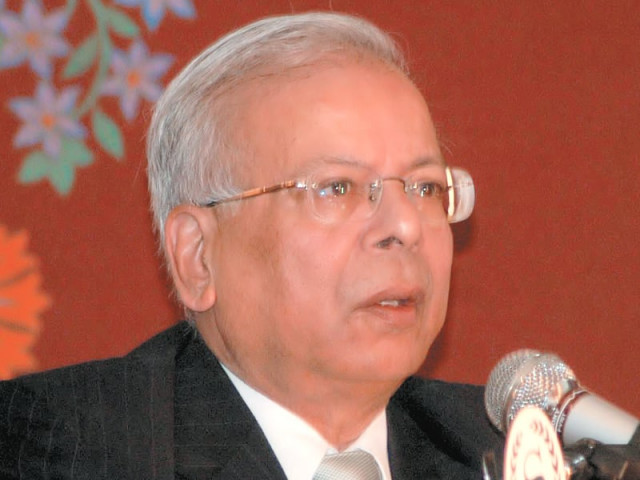Speakers call for sustainable development
Former SBP governor says economics alone does not solve every issue

Former governor of the State Bank of Pakistan (SBP) and one of the most prolific economists of Pakistan, Dr Ishrat Hussain, has said sustainable development is the need of the hour and for this, we have to start working now.
Hussain expressed these remarks while addressing the inaugural session for the Second International Conference on Sustainable Development in Contemporary World: Priorities, Challenges and Prospects held at Fatima Jinnah Women University on Tuesday where he was invited as the Guest of Honour.
The keynote speaker of the event was Prof Hafiz Pasha, a renowned economist presently serving as professor emeritus at Beacon House National University, while the international keynote address was delivered by Dr Lant Pritchett, RISE Research Director at the Blavatnik School of Government, University of Oxford.
Hussain delivered the Fatima Jinnah Lecture and outlined the new paradigm for potential future directions, stressing that economics alone does not solve every issue. “Currently, an interdisciplinary approach is required," he said and elaborated that several elements have altered the pathways for development and have produced a new power structure in the globe by beginning the journey from the history of development thought to the most vivid phenomenon of globalisation.
“These variables include the ageing population, the advent of China as a significant political force, the threat of climate change, the unparalleled pace of technological advancement, and financial integration,” he explained.
Dr Pasha, the keynote speaker for the conference, emphasised the need for financial sustainability as a component of the wider sustainability agenda. According to Dr Pasha, Pakistan's financial profile has declined from stable to B negative on the international scale of financial stability and credibility. He also mentioned that Pakistan is the fourth-most vulnerable nation in terms of its exposure to sovereign debt. “Even though the IMF programme has been reinstated, little has changed recently,” he said.
Dr Pasha continued in his speech by outlining the country's likely default reasons, which included a significant disparity between debt accumulation and foreign reserves, a worsening current account balance with declining export performance, and many looming difficulties like floods and other contingent risks. He suggested fixes include the need to control exchange rates, reinstate export incentives, and revise import duties.
Later, Dr Pritchett in his international keynote address emphasised that economic growth is pivotal for social progress, hence, any policy that does not prioritise economic growth as the necessary condition for development is not going to deliver what it is supposed to. “In Pakistan’s case, there is a need to recognise that climate change is not an outcome of any domestic policy, therefore, compromising on sustained growth for achieving sustainability is not a stable policy,” he said.
Earlier, stage secretary Dr Faiza Azhar Khan, welcomed guests, speakers, participants and the audience with Prof Bushra Yasmin, Conference Coordinator, offering the conference overview. Dr Saima Hamid, the Vice Chancellor Fatima Jinnah Women University delivered her welcome address virtually. She highlighted that the extent of SDGs-centric research taking place in the university is increasing and the department of economics is at the forefront of this research and related activities.
Published in The Express Tribune, October 6th, 2022.


















COMMENTS
Comments are moderated and generally will be posted if they are on-topic and not abusive.
For more information, please see our Comments FAQ